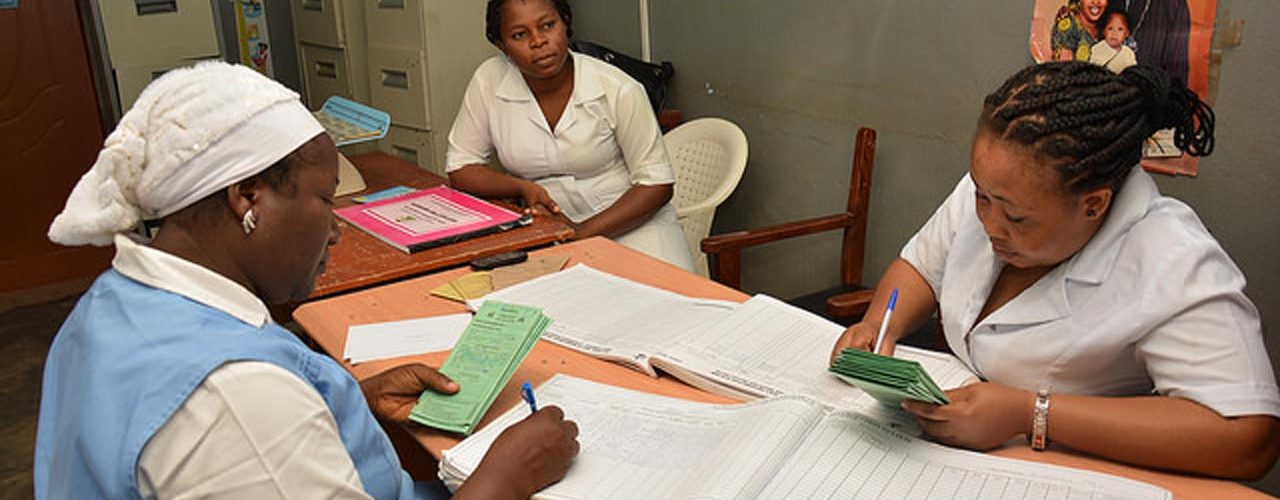I watched as my aunt took shallow breaths, while I reminisced about our time together before the hospital orderly interrupted my thoughts, saying “Your gloves have finished and we need it before we can treat your mama. Will you buy from me or do you want to get it outside?”
His words were laced with a patronising tone but I refrained from arguing with him and busied myself with opening my wallet to give him the money for gloves, so they could continue treating my aunt. I left the hospital afterwards to get gloves, gauze, plaster, and other things they would use to dress my aunt’s wounds.
As I was paying for the supplies at the pharmacy counter, I kept wondering, is this how a government hospital operates? Or this is just the exception? No! This is the reality of Nigeria’s healthcare system with multiple linkages.
The 2018 Health access quality (HAQ) index–which measures the quality and accessibility of healthcare based on 32 causes of death preventable with effective medical care–ranked Nigeria 187 out of 195 countries. More so, data on death rate, life expectancy and infant mortality rate echoes the awful state of Nigeria’s healthcare system.
Poor service delivery is inherent in public hospitals in Nigeria because of the age-long poor condition of service. The incessant strike of healthcare workers demanding for increment in salary, hazard allowance and other emoluments is a case in point. To buttress the lack of motivation by health workers, during the high season of COVID-19 pandemic, health personnel went on strike to protest against poor condition of service.
The poor condition has pushed Nigeria-trained medical doctors to seek better employment opportunities outside the shores of the country, further shrinking the terrible doctor to patient ratio 1:2,753.
Not to mention, the budgetary allocation to the health sector keeps shrinking every fiscal year, a far cry from the World Health Organization’s (WHO) or African Union’s (AU) fifteen percent recommendation. Recently, medical house officers protested over non-payment of salary and the federal government announced that they have removed the allowance from the payroll of the Federal Civil Service.
The Primary Health Care (PHC) system is non-existent in several rural areas or under-funded in places where you are lucky to find a community clinic. Despite state governments’ adoption of the National Health Insurance Scheme (NHIS) and signing laws to its effect, this could not solve basic healthcare problems of the growing population.
The poor and inadequate infrastructure in Nigerian hospitals including university teaching hospitals sinks the healthcare system further into an abysmal state. Though, private hospitals have better equipment but NBS data shows that more households are becoming financially deficient and cannot afford private medical healthcare.
A recurring factor influencing the inadequacies of Nigeria’s health system has been traced to the thriving foreign medical tourism. The culpability of health workers, citizens and government in promoting medical tourism cannot be overemphasised.
We know medical personnel to recommend foreign hospitals where patients can get better treatment or surgeries for their health conditions, saying Nigeria-trained medical professionals lack the know-how and equipment to cater for them. However, some of these health workers have standing agreements with Nigeria-based medical tourism outfits, which is a rewarding partnership for them. For citizens, nobody wants to die, so we have unconsciously normalised medical tourism by crowdsourcing funds, providing technical help and creating a political economy within it.
A report has shown that the government actively funds medical tourism. The ministry of defence funds medical trips of wounded soldiers to foreign countries to get rehabilitative surgeries and treatment, while the military hospitals remain under-funded. Not only that, the federal government pays for Nigeria’s first family’s medical tourism to the UK (for President Buhari), Dubai (Aisha Buhari) and Germany (Yusuf Buhari).
The irony of the government’s continued funding of medical tourism is that President Buhari’s administration vowed to put an end to it but he [Buhari] has spent about 200 days in London for medical reasons since he became President.
Experts say Nigeria loses about N576 billion yearly to medical tourism, 5.3% more than the health ministry’s budget for 2021. And this figure will continue to rise until the government prioritizes the revamping of the country’s healthcare system, either through well-structured public-private partnership or diverting funds earmarked for medical tourism into the country’s crumbling hospitals and PHCs.
This article conveys the views of the author and not necessarily that of Ominira Initiative.


